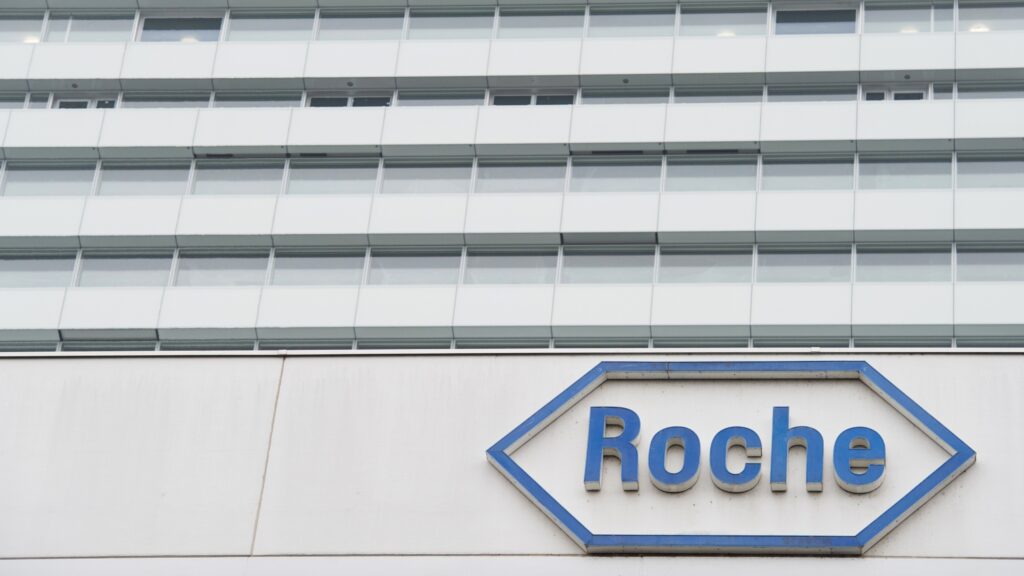Want to stay on top of the science and politics driving biotech today? Sign up to get our biotech newsletter in your inbox.
Happy Tuesday! Adam Feuerstein, here, filling in for your regular Readout correspondents.
advertisement
Biotech decided to release all the remaining news for the year just before Thanksgiving. It’s a bit crazy out there this morning.
Speaking of Turkey Day, in the 1970s, my paternal grandparents lived on Central Park West in NYC. They had a view of the parade route from their apartment balcony. One of my most cherished childhood memories.
The need-to-know this morning
- Roche said it would buy Poseida Therapeutics, which is designing off-the-shelf CAR-T treatments for both cancer and autoimmune diseases, for roughly $1 billion upfront.
- Sarepta Therapeutics and Arrowhead Pharmaceuticals signed a partnership agreement that will grant Sarepta global licensing rights to seven drug programs from Arrowhead focused on genetic diseases affecting muscles and nerves. Sarepta is paying Arrowhead $500 million in cash and making a $325 million equity investment.
Amgen’s MariTide data are here!
New data from a closely tracked, mid-stage study of the Amgen obesity drug, called MariTide, showed that it helped participants lose a substantial amount of weight, but questions about how competitive it could be appear to be shaping the response to the news, with the company’s share price falling on the announcement.
advertisement
MariTide led to an average of roughly 20% weight loss over a year in the Phase 2 study in participants who had obesity or who were overweight without type 2 diabetes. The company added that weight loss had not plateaued at that point, suggesting that there was potential for more weight loss.
Among participants who did have type 2 diabetes, who typically lose less weight on this class of drugs, MariTide led to an average of roughly 17% weight loss after a year.
Roche’s TIGIT troubles continue
The Swiss pharma giant said this morning that an experimental cancer treatment failed to improve survival in a major lung cancer study, a result that will further stoke doubts about the drug’s target.
In a short statement, Roche said that a combination of the drug, called tiragolumab, with its existing medicine Tecentriq did not outperform Tecentriq alone on the study’s primary endpoint of overall survival. The Phase 3 study, known as SKYSCRAPER-01, included more than 500 patients with a form of advanced non-small cell lung cancer.
Tiragolumab was designed to target a protein called TIGIT, which in recent years was seen as the next blockbuster opportunity in cancer immunotherapy. But early clinical data have been mixed, raising questions about whether companies had cracked how to successfully target TIGIT.
Cassava and its Alzheimer’s drug are done
I spent four crazy years writing about Cassava Sciences. Yesterday, the story ended exactly as I and many others knew it would — with the company’s experimental drug for Alzheimer’s disease, simufilam, proving to be nothing more than a placebo in a large clinical trial.
The negative outcome is devastating for the nearly 2,000 participants in this study and a second study also shut down yesterday. Clinical trials in Alzheimer’s fail all too frequently, but simufilam was built on falsified research and misleading efficacy claims. The drug should never have advanced this far.
Investors lost, too. Yesterday, alone, Cassava’s stock price fell 83%, shedding more than $1 billion in market value. Sadly, many of these people, nearly all retail investors, bought into the looney, meme-stock conspiracy theories that kept Cassava afloat.
A novel Alzheimer’s target misses the mark
Alector Therapeutics said that its Phase 2 trial for an experimental Alzheimer’s antibody failed, dealing a blow to what had been one of the leading dark horse approaches to treating the neurodegenerative disease.
The drug, called AL002, is designed to activate a group of surveilling neuronal immune cells called microglia. It was among several efforts, now in or nearing clinical trials, predicated on the notion that modulating the brain’s immune system could slow the degenerative disease.
In the 381-person trial, however, patients who received AL002 didn’t decline more slowly than patients who were on placebo, as measured by a scale called the Clinical Dementia Rating Sum of Boxes.
Inside the market for GLP-1 copycats
In the latest STAT deep dive video, my colleague Alex Hogan explains the loophole that allows certain pharmacies to make generic versions of the blockbuster GLP-1 drugs for weight loss, Ozempic and Wegovy.

